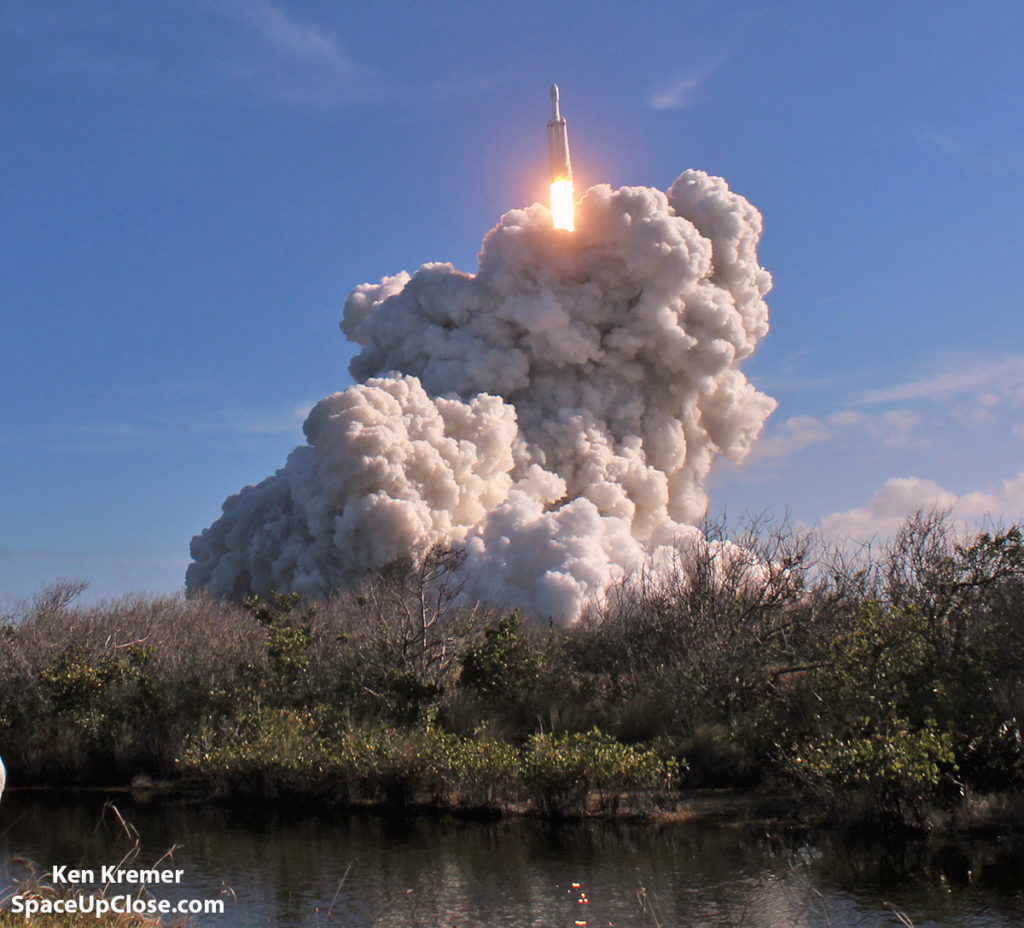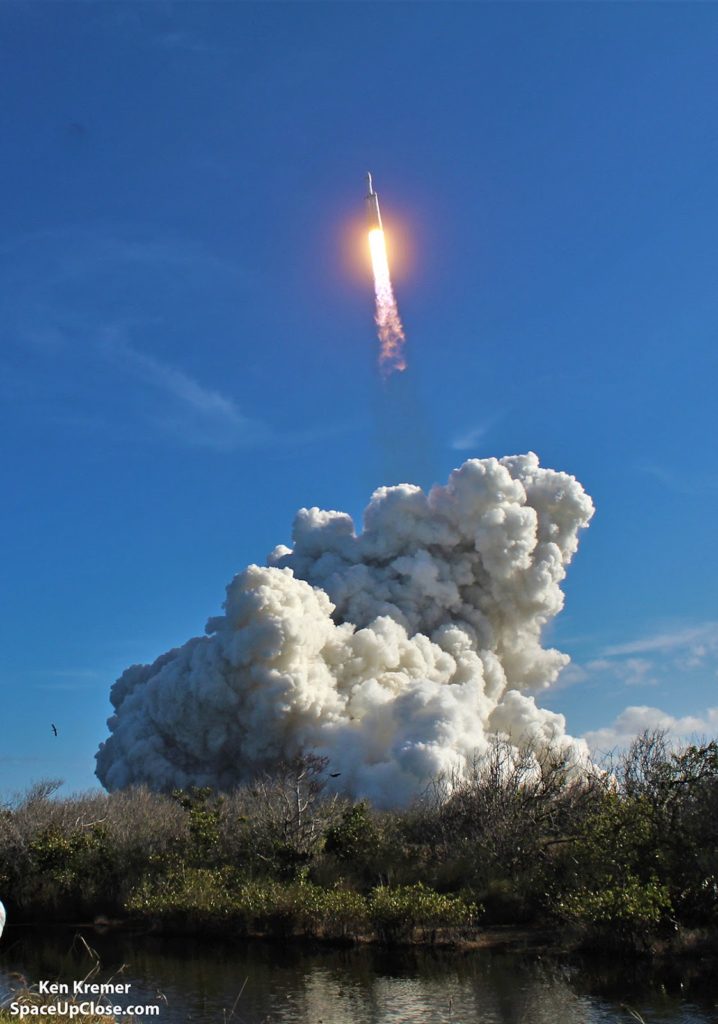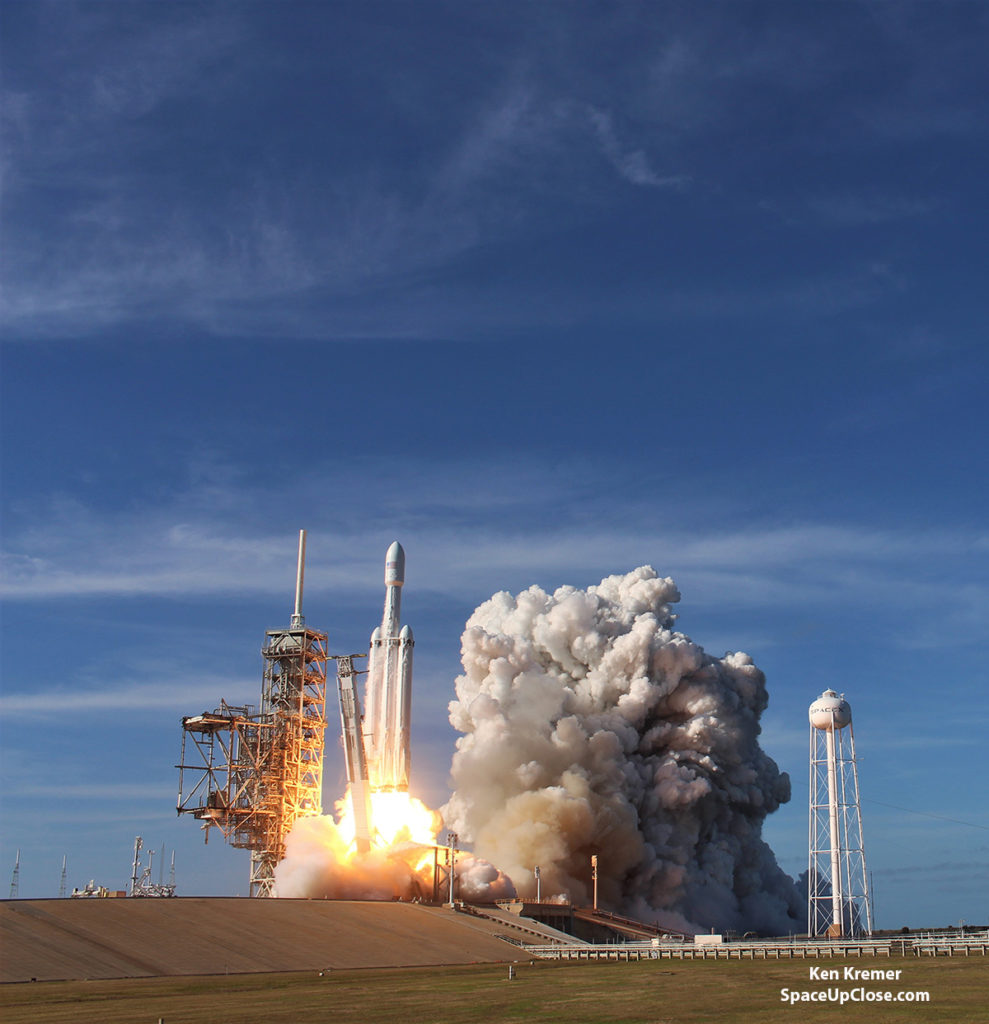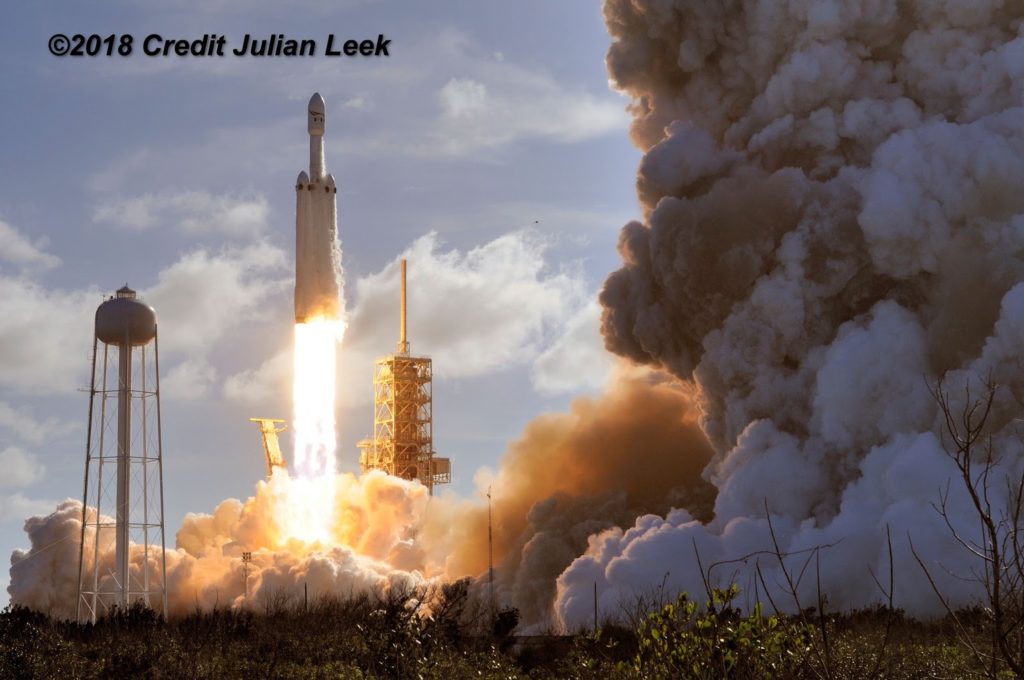Ken Kremer
— SpaceUpClose.com — 7 Feb 2018
the birth of a new ‘Falcon’ species on Tuesday, Feb. 6, when with ‘Fire & Fury’ the SpaceX ‘Falcon
Heavy’ triple core rocket emerged for the first time from the massive exhaust cloud
of the vehicles birth canal at Launch Complex 39A
at Florida’s Spaceport spewing towering mountainous long flames from its
rear sparking the journey of ‘Starman’ in a red Tesla sports car to deep space.
inaugural test flight of the triple stick Falcon Heavy rocket lifted off in
spectacular fashion from historic pad 39A at NASA’s
Kennedy Space Center in Florida, Tuesday afternoon at 3:45 p.m. EST
(2045 GMT) on Feb. 6 generating the loudest roar to space since the shuttles
were retired in July 2011.
mannequin nicknamed ‘Starman’ and buckled up in the driver’s seat of SpaceX billionaire CEO Elon Musk’s midnight red Tesla
sports car on a deep space journey to Mars and Beyond as the whimsically gimmickry payload for this inaugural
demonstration mission for the firm he founded.
gallery of photos and videos captured by myself and several space colleagues.
‘SpaceUpClose’ gallery grows!
 |
|
Maiden SpaceX Falcon Heavy rocket blasts off from Launch Complex
39A at NASA’s Kennedy Space Center in Florida on Feb. 6, 2017 with SpaceX CEO Elon Musk’s Tesla sports car as the payload bound for Mars and beyond. Credit: Ken Kremer/SpaceUpClose.com/kenkremer.com
The triple stick Falcon Heavy is comprised of a trio of Falcon 9
boosters that generate a combined 5 million pounds of liftoff thrust from the ignition of a total of 27 Merlin 1D first stage engines.
|
 |
|
Maiden SpaceX Falcon Heavy rocket blasts off from Launch Complex
39A at NASA’s Kennedy Space Center in Florida on Feb. 6, 2017 with SpaceX CEO Elon Musk’s Tesla sports car as the payload bound for Mars and beyond. Credit: Ken Kremer/SpaceUpClose.com/kenkremer.com |
deal with aerodynamic stresses, that is bolted together to a pair of
side-mounted cores with newly developed nose cones mounted in place of payload fairings.
launched once and were recycled for the Heavy.
They both previously flew as Falcon 9s on the Thaicomm 8 commercial comsat
mission and NASA’s Dragon CRS-9 space station resupply mission in May and July
2016 after landing safely back at sea and land respectively on the OCISLY droneship
and Landing Zone-1 (LZ-1).
(12.2 meters). It also features a dozen
grid fins and a dozen landing legs attached to the first stage boosters in an
attempt to soft land all three cores – by land and by sea.
at SpaceX’s Landing Zones 1 and 2 (LZ-1 and LZ-2) some eight minutes after liftoff.
Caption: Synchronized landings of the first Falcon Heavy side booster rockets at Landing Zones 1 and 2 after Feb. 6, 2018 launch from pad 39A at KSC, FL Credit: Jeff Seibert
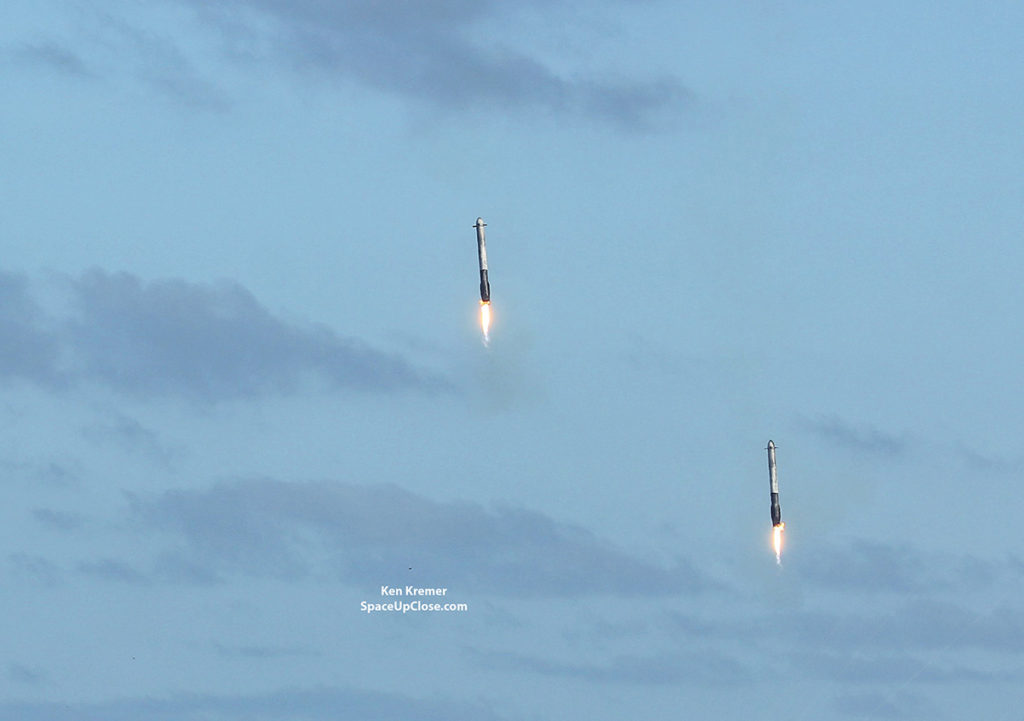 |
|
The two recycled SpaceX Falcon Heavy side boosters landed nearly simultaneously,
and side by side, on Feb. 6, eight minutes after maiden liftoff from Launch Complex 39A at NASA’s Kennedy Space Center in Florida on Feb. 6, 2018. Credit: Ken Kremer/SpaceUpClose.com/kenkremer.com |
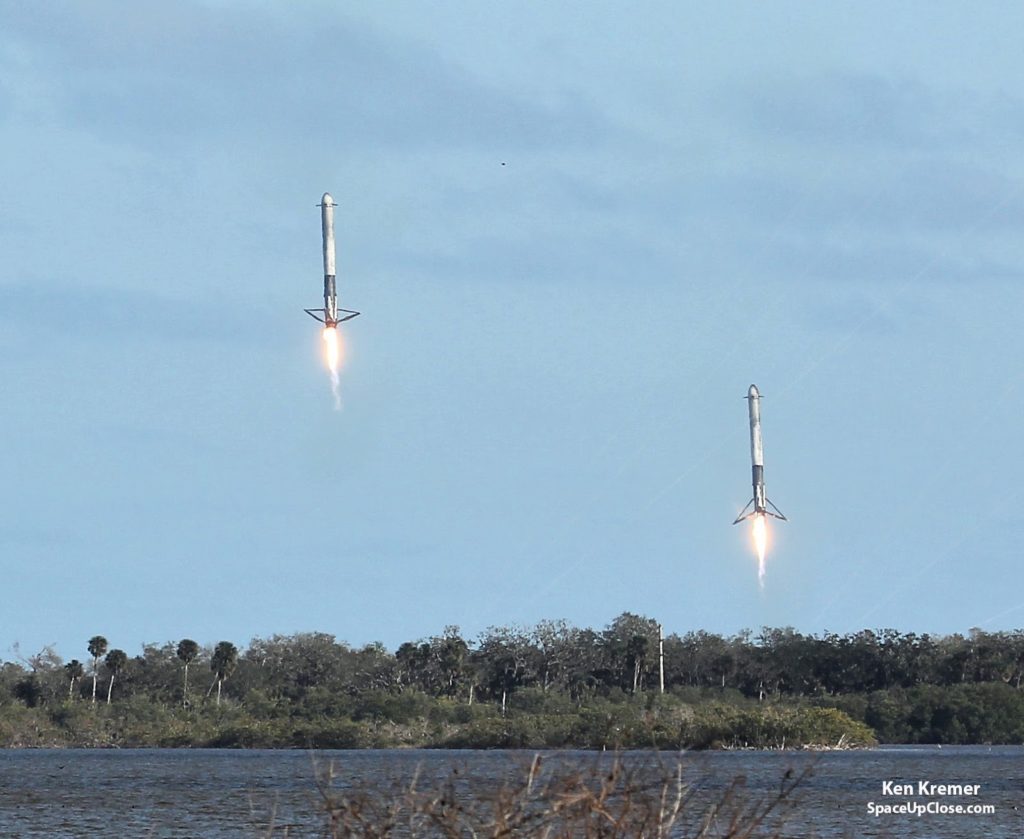 |
|
The two recycled SpaceX Falcon Heavy side boosters landed nearly simultaneously,
and side by side, on Feb. 6, eight minutes after maiden liftoff from Launch Complex 39A at NASA’s Kennedy Space Center in Florida on Feb. 6, 2018. Credit: Ken Kremer/SpaceUpClose.com/kenkremer.com |
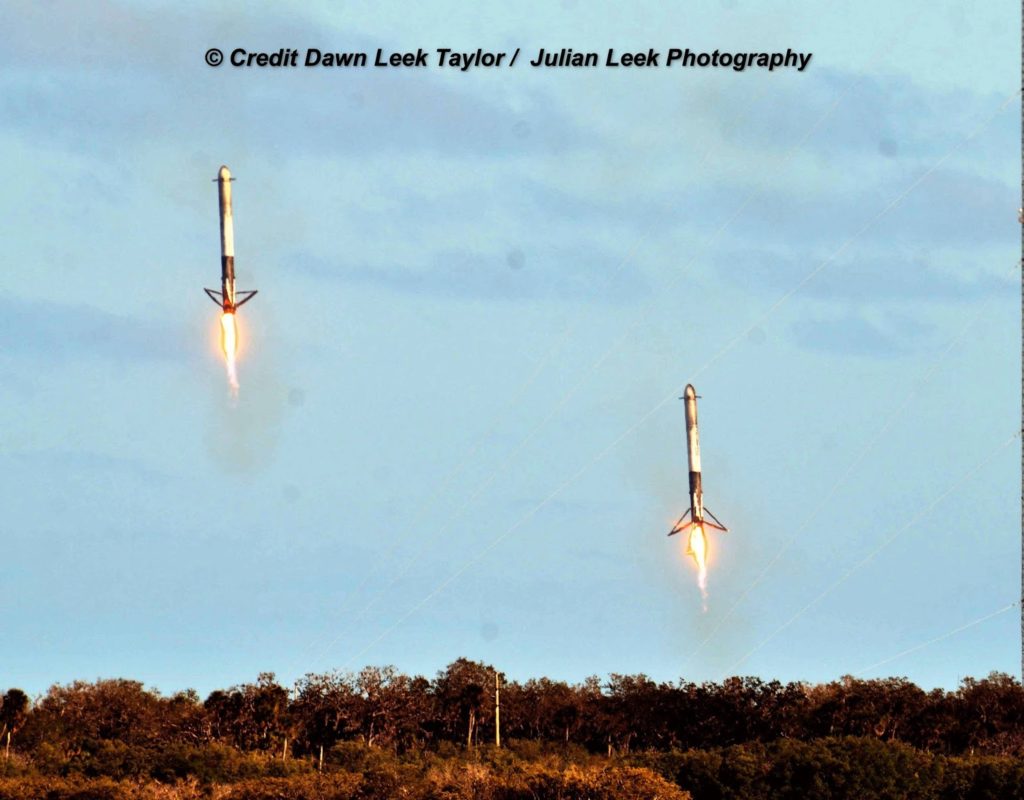 |
|
Landings of the 2
side boosters after debut Falcon Heavy launch on Feb. 6, 2018. Credit: Dawn Leek Taylor |
Read our detailed prelaunch and launch
stories.
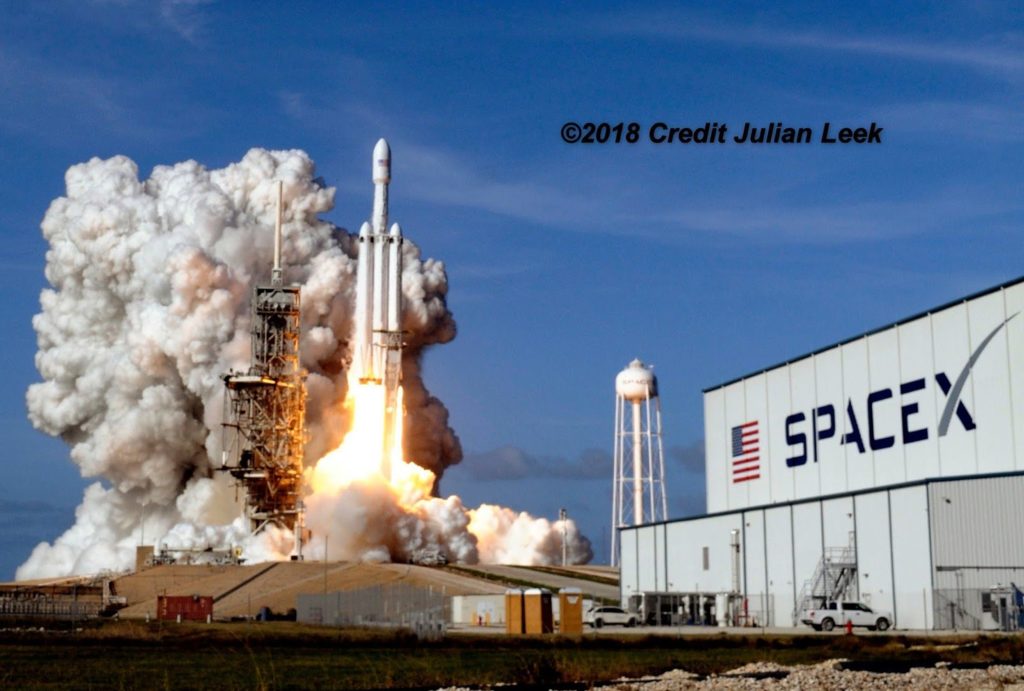 |
|
Liftoff of SpaceX
Falcon Heavy on first demonstration test flight from Launch Complex 39A at NASA’s Kennedy Space Center in Florida on Feb. 6, 2018. Credit: Julian Leek |
for Ken’s continuing onsite coverage of Falcon Heavy, ULA and NASA and space mission reports direct
from the Kennedy Space Center and Cape Canaveral Air Force Station, Florida.
Earth and Planetary science and human spaceflight news: www.kenkremer.com –www.spaceupclose.com –
twitter @ken_kremer – ken
at kenkremer.com
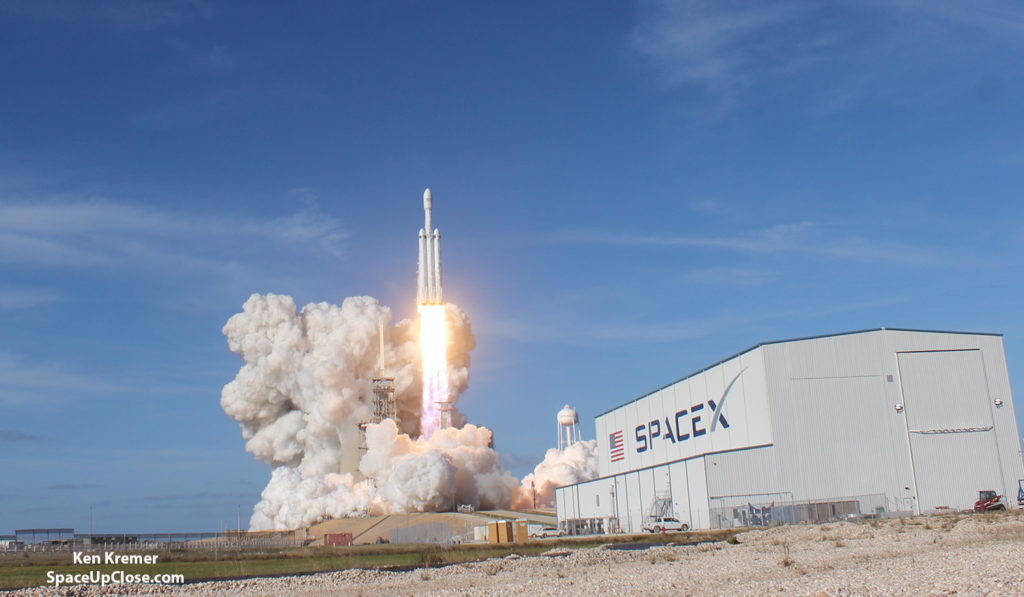 |
|
Maiden SpaceX Falcon Heavy rocket blasts off from Launch Complex
39A at NASA’s Kennedy Space Center in Florida on Feb. 6, 2017. Nose cone housing Starman seated in Tesla Roadster is stenciled with Falcon Heavy logo. Credit: Ken Kremer/SpaceUpClose.com/kenkremer.com |
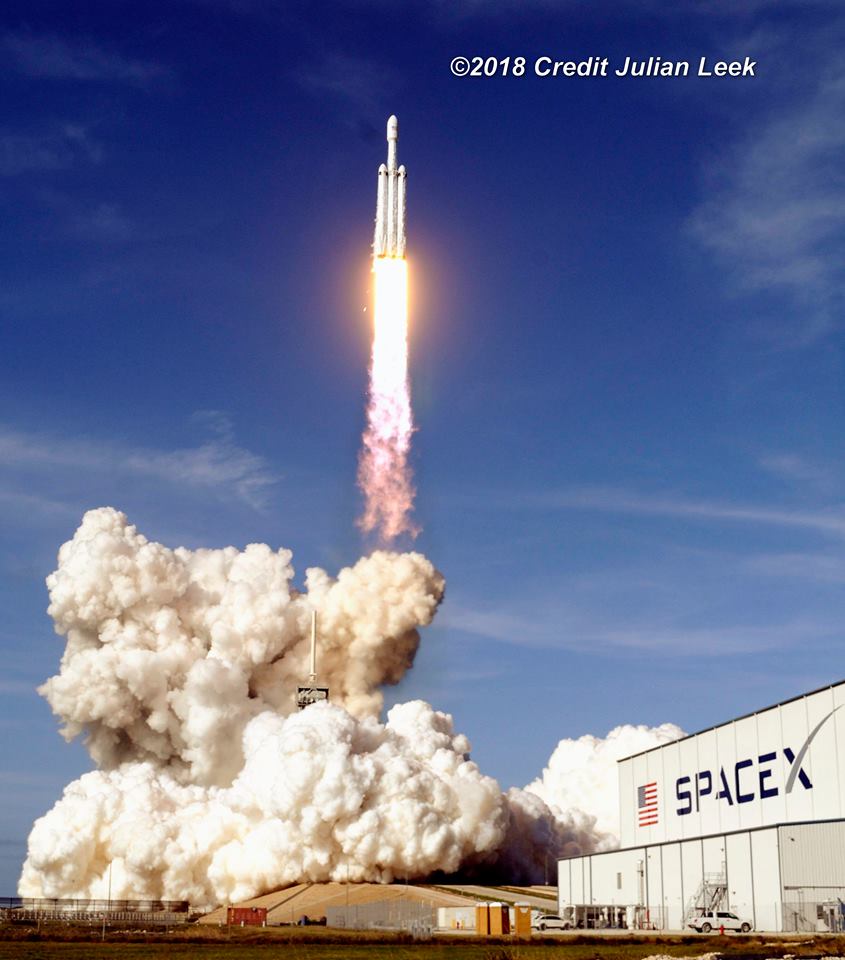 |
 |
|
Maiden SpaceX Falcon Heavy rocket blasts off from Launch
Complex 39A at NASA’s Kennedy Space Center in Florida on Feb. 6, 2017. Credit: Ken Kremer/SpaceUpClose.com/kenkremer.com |
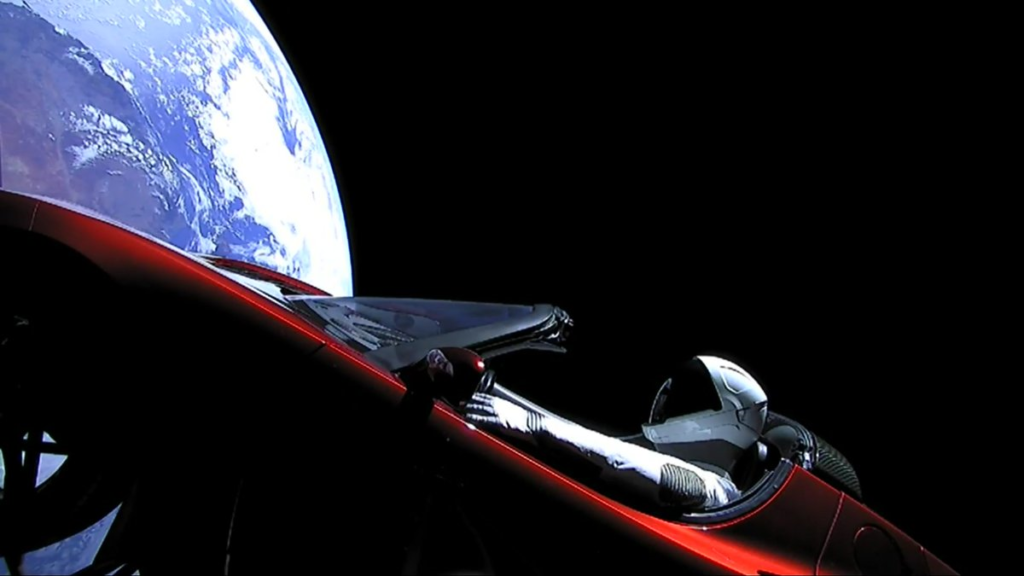 |


